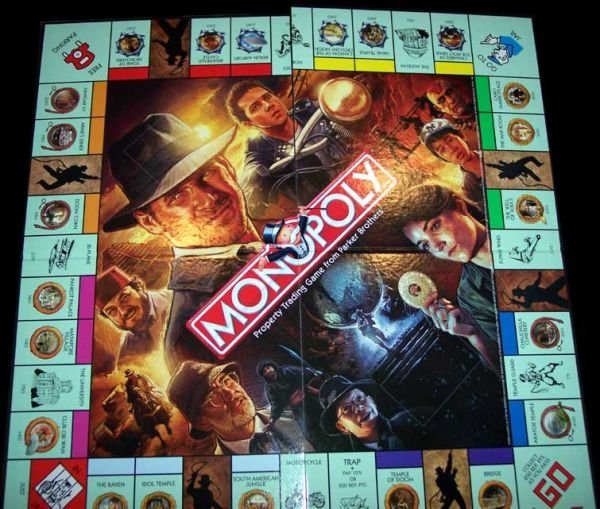|
|
Monopoly
|
The history of Monopoly can be traced back to 1903, when a Quaker woman named Elizabeth (Lizzie) J. Magie Phillips created a game through which she hoped to be able to explain the single tax theory of Henry George (it was intended to illustrate the negative aspects of concentrating land in private monopolies). Her game, The Landlord's Game, was commercially published in 1924. Other interested game players redeveloped the game, some changing its name to Auction Monopoly and later to plain Monopoly, and many making their own sets customized for their own cities. Several people, mostly in the U.S. Midwest and near the U.S. East Coast, contributed to the American version of the game's design and evolution. Phillips herself patented a revised edition of the game in 1923, and similar games of this nature were published commercially.
Charles Darrow is known to have played an Atlantic City variation of "Monopoly", created by his friends, the Todds, who lived in Philadelphia. He was made unemployed in the 1929 crash and decided to sell copies of the game taught to him by the Todds. He launched it in 1933 and it quickly made him rich. In most cases, it is still true today that the value of the spaces on the board reflect the actual condition of the real streets in Atlantic City with Boardwalk and Park Place being the nicest and Mediterranean and Baltic not very nice. In 1935 Parker Brothers bought the rights from Darrow and started manufacturing a slightly updated version. In the same year Waddingtons bought the UK rights to the game and made a version based on the streets of London.
In 1941 the British Secret Service had John Waddington Ltd., the licensed manufacturer of the game outside the U.S., create a special edition for World War II prisoners of war held by the Nazis. Hidden inside these games were maps, compasses, real money, and other objects useful for escaping. They were distributed to prisoners by secret service created fake charity groups. This was the first "special issue" of the game.
By the 1970s, the game's early history had been lost (at least one historian has argued that it was purposely suppressed), and the idea that it had been created solely by Charles Darrow had become popular folklore. This was stated in the 1974 book The Monopoly Book: Strategy and Tactics of the World's Most Popular Game, by Maxine Brady, and even in the instructions of the game itself. As Professor Ralph Anspach fought Parker Brothers and its then parent company, General Mills, over the trademarks of the Monopoly board game, much of the early history of the game was "rediscovered".
|
|









